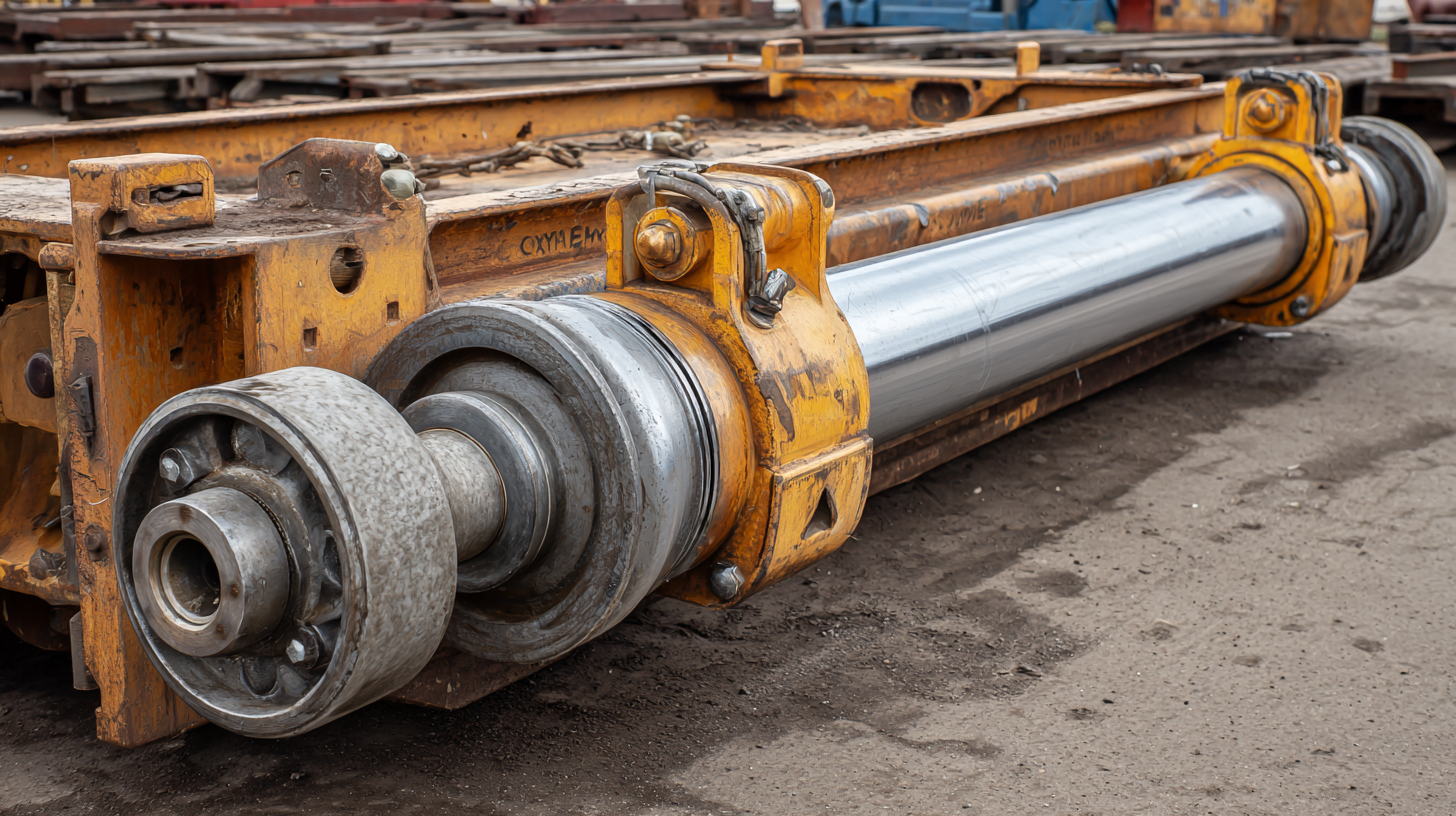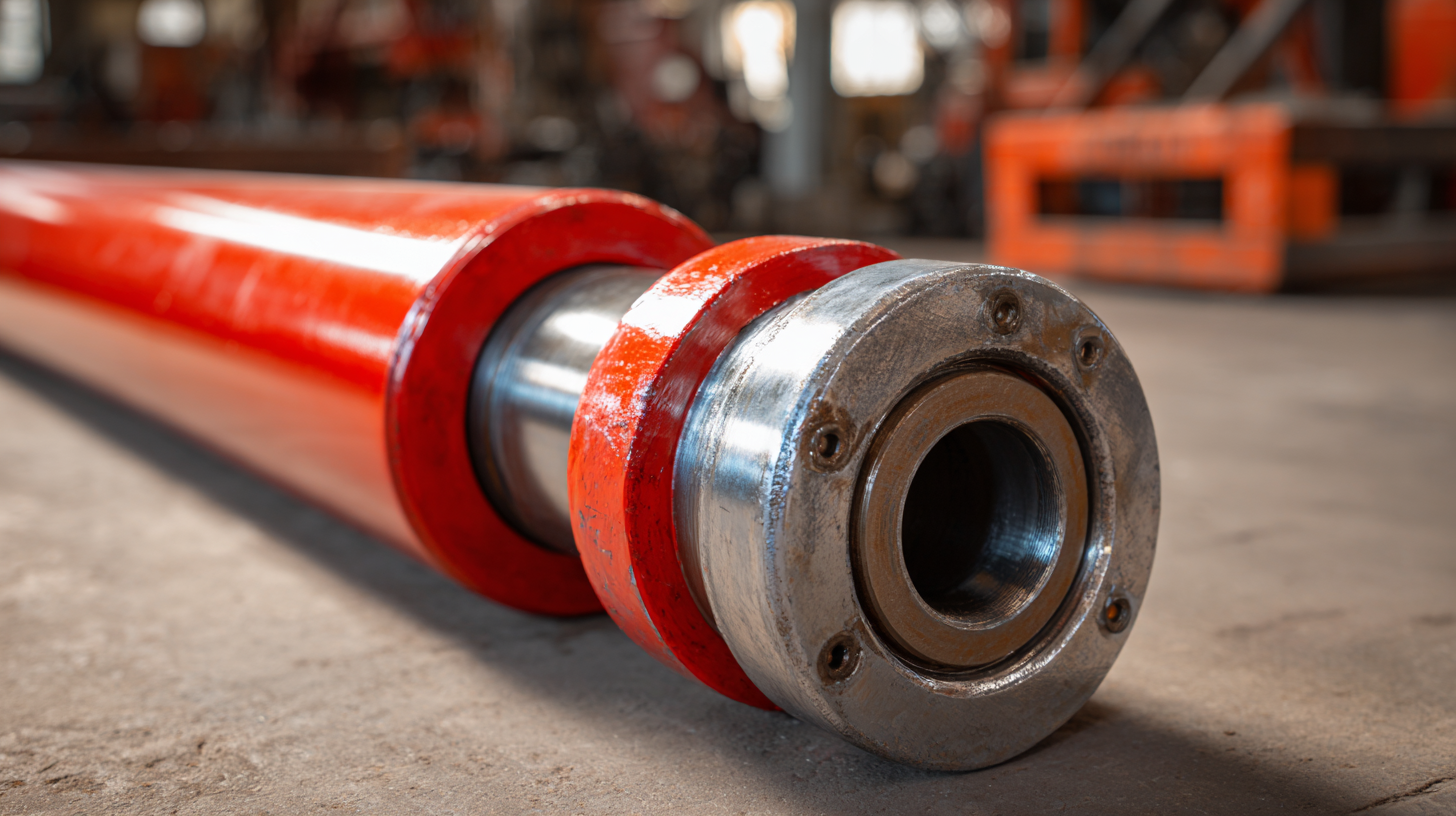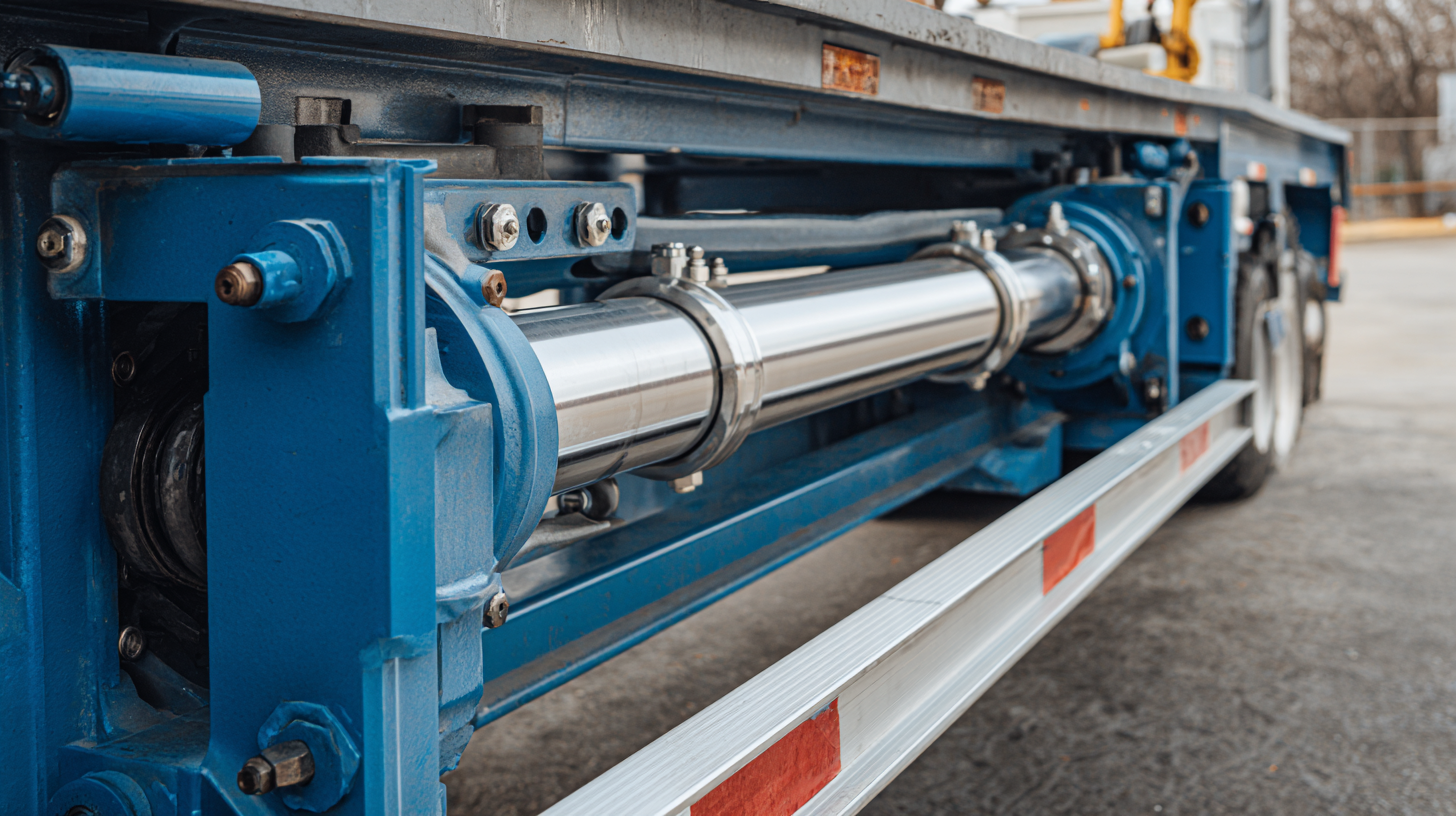
A Comprehensive Guide to Selecting the Best Hydraulic Cylinder for Your Trailer Needs
When it comes to maximizing the efficiency and performance of your trailer, selecting the right hydraulic cylinder is crucial. A hydraulic cylinder for trailer applications not only ensures smooth operation but also contributes to the overall safety and durability of the trailer system. With a plethora of options available in the market, choosing a high-quality manufacturer can often be overwhelming. This comprehensive guide aims to simplify the selection process by outlining essential factors to consider, including material quality, load capacity, and compatibility with your trailer specifications. Whether you are a seasoned professional or a newcomer to the world of trailers, understanding how to identify a reliable hydraulic cylinder manufacturer will empower you to make informed decisions that enhance your trailer's capabilities.

Join us as we delve into the key aspects of selecting the best hydraulic cylinder for your trailer needs.
Key Factors Influencing Hydraulic Cylinder Selection for Trailers
When selecting the best hydraulic cylinder for your trailer needs, several key factors must influence your decision. One of the primary considerations is the cylinder's load capacity, which should accurately match the weight of the load you intend to carry. Overloading a hydraulic cylinder can lead to mechanical failure and unsafe conditions, so always consult the manufacturer’s specifications to ensure proper fitting.
Another important factor is the stroke length of the cylinder. It should be tailored to the specific application and dimensions of your trailer. A cylinder with the appropriate stroke length will allow for efficient operation and precise control of trailer movements. Short strokes may limit functionality, while excessively long strokes can result in unnecessary weight and cost.
Tips: Always consider the working pressure of the hydraulic system; aligning it with your cylinder's rated pressure will optimize performance. Additionally, look for trusted brands and verify user reviews to ensure reliability and quality. Regular maintenance and inspection of hydraulic systems also play a crucial role in ensuring the longevity of your cylinders and overall trailer performance.
Understanding the Different Types of Hydraulic Cylinders and Their Applications
When selecting the best hydraulic cylinder for your trailer needs, it's crucial to understand the various types available and their specific applications. The global hydraulic cylinder market was valued at approximately USD 14.3 billion in 2021 and is forecasted to reach USD 18.3 billion by 2027, highlighting a significant growth trend in this essential sector. Different types of hydraulic cylinders—like single-acting, double-acting, and telescopic variations—offer distinct advantages depending on the operational requirements. For instance, double-acting cylinders provide force in both directions, making them ideal for applications requiring consistent power, while telescopic cylinders are useful for limited spaces where more extension is needed.
Additionally, advances in sensor technologies are enhancing hydraulic systems' effectiveness by enabling real-time performance monitoring. These innovations contribute significantly to the hydraulic industry by offering better diagnostics and improving system reliability. As the market continues to evolve, understanding the intricacies of hydraulic cylinders and staying informed about new technologies will be vital for optimizing trailer operations and ensuring they meet diverse engineering needs.
A Comprehensive Guide to Selecting the Best Hydraulic Cylinder for Your Trailer Needs
| Cylinder Type | Bore Size (inches) | Stroke Length (inches) | Max Pressure (psi) | Application |
|---|---|---|---|---|
| Single-Acting Cylinder | 1.5 | 24 | 3000 | Dump Trailers |
| Double-Acting Cylinder | 3 | 36 | 2500 | Gooseneck Trailers |
| Telescopic Cylinder | 4 | 60 | 2000 | Car Haulers |
| Rotary Cylinder | 2 | 15 | 3500 | Tilt Trailers |
| Heavy-Duty Cylinder | 5 | 48 | 4000 | Lowboy Trailers |
Assessing Load Capacity: Calculating Weight Requirements for Your Trailer
When selecting the best hydraulic cylinder for your trailer, assessing the load capacity is crucial. Start by calculating the total weight your trailer will carry, including cargo and the trailer's own weight. This ensures you choose a hydraulic cylinder that can handle the maximum load without compromising safety or performance. Remember that the load capacity must exceed the estimated weight to accommodate any unforeseen increases in weight or dynamic forces during operation.

Tips: Always factor in the weight distribution on your trailer, as uneven weight can strain the hydraulic system. Additionally, consider the type of terrain you'll be navigating. Heavier loads on rough surfaces may require more robust hydraulic cylinders. Opt for a cylinder with a margin for safety, and consult manufacturer specifications for guidance on load ratings.
Another important aspect is understanding the stroke length needed for effective operation. Stroke length affects how far the cylinder can extend to lift or lower your trailer. Assess your trailer's design and the height required when fully loaded. Selecting a cylinder with the appropriate stroke length ensures it can perform efficiently, providing the necessary power for your specific applications.
Material and Construction Considerations for Durable Hydraulic Cylinders
When selecting hydraulic cylinders for trailers, the material and construction of the cylinder play a critical role in their longevity and performance. According to a report by the National Institute of Standards and Technology, hydraulic cylinders must withstand high pressures, often exceeding 3,000 psi in demanding applications. Thus, using high-grade steel or aluminum alloys is essential to ensure structural integrity and resistance to corrosion. For instance, the use of chrome-plated shafts not only enhances durability but also minimizes wear over time, contributing to the long service life of the cylinders.

Another important consideration is the manufacturing process. Hydraulic cylinders that employ advanced techniques such as precision machining and rigorous quality controls tend to perform better under stress. A study by the Hydraulic Institute revealed that cylinders produced with computer numerical control (CNC) technology exhibit a 25% lower failure rate compared to traditional manufacturing methods. Additionally, incorporating features like double seals and protective coatings can significantly enhance the resistance of the cylinder to external contaminants, which is crucial for maintaining optimal efficiency in harsh environments. By prioritizing these material and construction factors, users can ensure they select hydraulic cylinders that will meet their trailer needs effectively.
Industry Trends 2025: Innovations in Hydraulic Cylinder Technology for Trailers
In 2025, the hydraulic cylinder technology for trailers is set for groundbreaking advancements that prioritize both efficiency and sustainability. As the transportation sector navigates the dual challenges of technological innovation and environmental pressures, hydraulic systems are evolving to meet the demands of modern trailers. New designs are expected to enhance operational efficiency, enabling trailers to carry heavier loads while consuming less energy.
When selecting a hydraulic cylinder for trailer needs, consider the compatibility with your specific vehicle type and operation. An efficient hydraulic system will not only improve the trailer's performance but also contribute to cost savings through reduced energy consumption. Additionally, pay attention to the materials and construction of the cylinder; lightweight yet durable materials can lead to better fuel efficiency and longer service life.
As industry leaders continue to unveil innovations, it’s beneficial to stay updated on the latest trends. Attending trade shows or engaging with experts can provide valuable insights into emerging technologies. Investing in cutting-edge hydraulic solutions today will position your trailer for optimal performance in the rapidly evolving market of 2025 and beyond.
